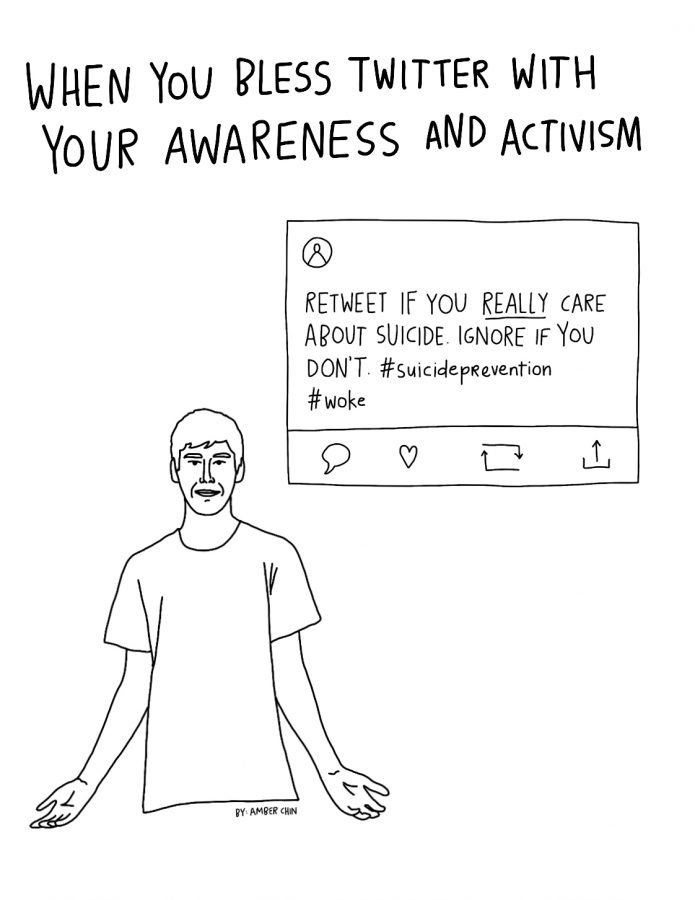September is National Suicide Prevention Month, a time when people honor lost loved ones and promote awareness of the severity of suicidal thoughts and ideation. Suicidal thoughts are a form of intrusive thinking that anyone can have without being depressed.
Suicidal ideation is when those intrusive thoughts begin to recur and turn into the pursuit of suicide. Suicide is the second most common cause of death among college students, and many of the students struggling with suicidal thoughts do not reach out for help. Society attaches a shameful stigma to depression and suicidal thoughts, leading to a much larger pain.
Every year, UTSA places hundreds of white flags on the lawn of the Main Campus to honor the lost lives of college students who committed suicide. This year the flags were put out the week of Sept. 10. UTSA also provides counseling services and promotes the National Suicide Prevention Lifeline. While promoting awareness is beneficial, students remain hesitant to reach out.
Those struggling with severe depression may be hesitant or afraid to approach the subject with those close to them. On social media, there is a growing trend encouraging people to check up on their friends, and a lot of push-back has developed towards people who retweet or post comments like this only to appear that they genuinely care about this issue. This disingenuous chatter results in a false idea that more people are actively taking a role in suicide prevention than there really are.
Mental health awareness should not be about retweets or account exposure, but for the genuine concern of helping those in need. Reaching out to those you suspect to be struggling can be a difficult conversation, but potentially a lifesaving one.
Mental illness rates are growing, especially among young adults as 42 percent of college students suffer from anxiety, and 36 percent suffer from depression, according to the American Psychology Association. However, these numbers are the diagnosed cases.
Many students who experience mental health issues don’t get diagnosed. According to College Degree Search, the suicide rate among young adults has tripled since 1950. Every day, it is likely you pass someone on campus who is struggling in that moment. Students at the library crouched over a textbook, holding back tears. Students who didn’t go to class because they were too depressed to get themselves out of bed. Symptoms can consist of behavioral shifts such as withdrawal from social settings, increased irritability, decreased stability, appearing to be boiling under the surface, loss of appetite and self harm. On the UTSA Behavioral Concerns Assistance page, these symptoms are described.
Checking in on your friends, whether or not they seem to have it together, is important. Sometimes the people who hold it together best are the most troubled. This month is about raising awareness, reflecting on the lives lost and reaching out to make a difference to prevent someone we love from potentially going away forever.
To further your education on mental illness and skills to help those who are struggling, the free Peer-to-Peer class from the National Alliance on Mental Illness is provided in San Antonio.
If you, or someone you know, is experiencing suicidal thoughts, call 1-800-273-TALK for help.












